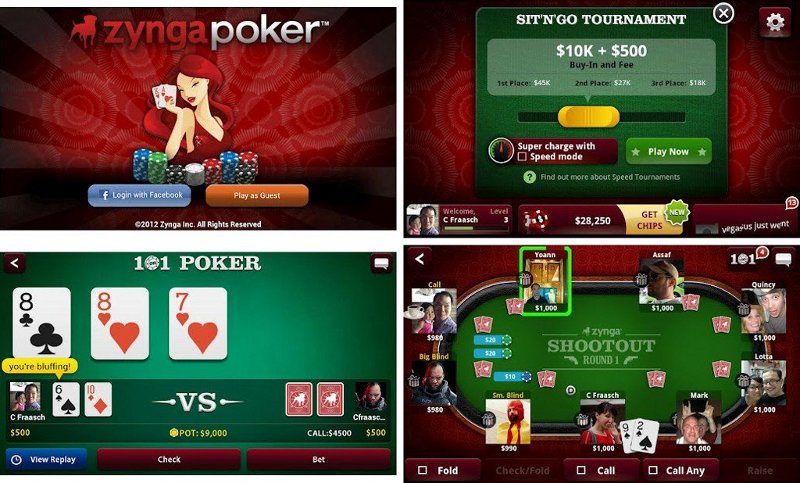Review of best cards in poker::How Do You Play Omaha Poker
Review of best cards in poker::How Do You Play Omaha Poker
Texas Hold'em is by far the most popular version of poker being played in the United States today. You can find it being played at nearly any casino that has a poker room and tournaments are being featured regularly on TV. The game is simple to learn and fun to play, but an inexperienced player might find their money draining away faster than they are comfortable with when playing against seasoned vets. Becoming a professional Texas Hold'em player takes a lot of skill and practice, and there are many fine books that can be purchased at any bookstore that can teach you the more advanced principles of the game. However, in this article we are going to focus on a few simple core principles that you can utilize to improve your game. These principles will give you a solid foundation upon which you can build your poker skill and perhaps win a little money along the way. Never Play Scared When playing Texas Hold'em, or any form of gambling for that matter, it is imperative that you are playing only with money that you can afford to lose. Nothing will strip away any advantage you have quicker than playing with "scared money". You need to be able to focus on making correct decisions based solely on the cards in your hand and the situation with the other players. Playing with money that you really shouldn't be playing with will lead to anxiety, and that anxiety will lead to you making the wrong decisions. You might throw away winning hands because you are scared of losing, or worse you might call hands that you know you are going to lose because you are desperately trying to win back money that you have already lost. Gambling is addictive because of the excitement that it brings. This excitement should be fun, not scary. If you take nothing else away from this article, take this. Pay Attention To Position In Texas Hold'em, the term position refers to your place in the betting order. The player to the left of the dealer always bets first and then the action moves clockwise around the table. Most new players have no idea how important position is and what the advantage is in being the last person to bet. The way that your opponents bet can tell you a lot about their hands. If someone raises, then they probably have a strong hand. If someone calls or checks, their hand is probably only so-so. The person in last position gets to see what everyone else at the table is going to do before making their decision to raise, call, or fold their hand. If your hand is mediocre, and several people before you raised the bet or called the raised bet, then you know that they think their hands are pretty strong. You know your hand is mediocre so you can fold your hand since you are most likely the underdog. The player in first position is the worst off. He has to make his bet before anyone else. If he has a strong hand and bets big, he might cause other players to fold, depriving himself of their money. If his hand is mediocre, he has to decide whether to bet in order to pretend that he has a bigger hand than he does, or he can check, which will let everyone know that his hand is probably junk. If he bets just a small amount, then other people with mediocre hands will stay in the game, and the next card that comes up on the board might give them a better hand than his. Positional play is a huge part of Texas Hold'em, and detailing how to play various hands in all of the different possible positions at the table is beyond the scope of the article. For the beginner it is enough to remember that the smaller your pocket cards, and the earlier your position, the weaker your hand is. A pair of 8's in last position is good because you can see how everyone else is going to bet and you can judge whether or not your hand is beat. A pair of 8's in first position is dangerous because you are left with the choice of either betting big to try and drive out players, or betting small and giving everyone else a chance to beat you. As you spend your time at the table, make sure to watch how people bet, and how the person in last position has an advantage, and how the people in early positions are forced to behave. Betting and Raising is Better than Checking and Calling Poker is an aggressive game. Players who are willing to play more boldly will win more than a player who just tosses money into the pot hoping for the miracle card to appear on the river that will win them the hand. Unless you have an unbeatable hand right off the bat, you want to get to the showdown with as few players remaining in the pot as possible. The purpose of betting and raising is to make the hand too expensive for players with mediocre hands to stay in. A lot of players hope for the bets to stay as cheap as possible so they can keep drawing cards, hoping that the turn or the river card will make their losing hand into a winner. You don't want this to happen. When you have a hand that you think is strong enough to win then you want to make the bets more expensive to encourage the weaker hands to just fold and try again next hand. Betting and raising is sometimes tough for new players to do. They often do not want people to think that they are bluffing, and they think that if they do a lot of raising and wind up losing the pot that they will look foolish. This is simply not the case. Raising bets is a normal part of playing poker and the best way to make sure that you win more often and win more money when you do. Always Know the Board and Try to Know Your Opponents Hand It's easy to know what you have, but not so easy to know for sure what your opponents might have. During the course of the game, it is highly important that you not just focus on what you have. You must always be trying to figure out exactly what it is your opponent is holding. Luckily, there are more cards dealt face up in Hold'em than are dealt face down, so you already know most of what your opponent has. Look at whats on the board and then look at the way your opponent is betting and try to determine what he possibly has. Are there 3 cards of the same suit on the board, making it a possibility that your opponent has a flush? Are the cards on the board close enough together in rank that your opponent might have a straight? Did your opponent just call the bet before the flop, and then come out swinging after the flop? During the course of a night of poker, you will play a lot of hands and spend a lot of time with the same people. You have plenty of opportunities to watch the other players and learn how they play. Watch every hand, even the ones you have folded out of early on. Try to find the player at the table who seems to be winning most often and keep an eye on what he's doing so you can be prepared should it ever just come down to the two of you. There's No Shame in Folding When you realize that your hand is very weak and that there is no way to drive out everyone else, then fold. There's nothing wrong with throwing your cards away. There will always be another hand right after this one that might give you better cards. Holding onto losing hands is probably the number one new player mistake. Never call a bet just to keep the other player "honest". If you think you have lost, then most likely you have and it's better to just get on with it than to throw good money at bad cards. Conclusion Texas Hold'em is a lot of fun, and you can play a few hours of poker for a lot cheaper than slots or other casino games. Armed with the knowledge that you learned in this article, the next time you sit down at the table you should feel more confident and have a better time. |
Image of best cards in poker
best cards in poker Image 1
best cards in poker Image 2
best cards in poker Image 3
best cards in poker Image 4
best cards in poker Image 5
Related blog with best cards in poker
Related Video with best cards in poker
best cards in poker Video 1
best cards in poker Video 2
best cards in poker Video 3
best cards in poker
Labels: Best Plastic Playing Cards, Best Playing Cards, Best Playing Cards Ever, Best Playing Cards Made, Bicycle Playing Cards, Buy Poker Cards, The Best Poker Hands, Top 10 Playing Cards






0 Comments:
Post a Comment
Subscribe to Post Comments [Atom]
<< Home